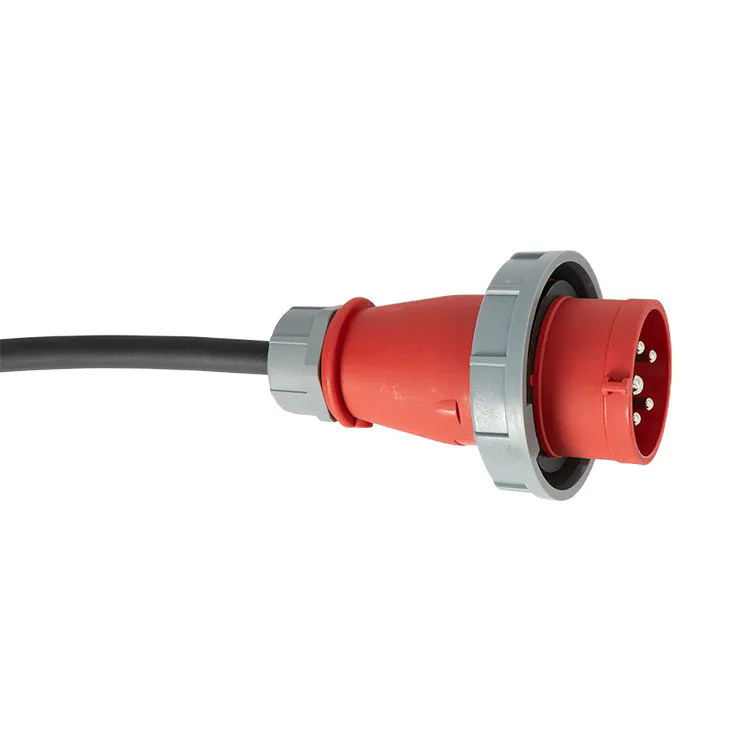Everything You Need to Know About Industrial Connectors
2024-10-22
Industrial connectors are essential components in ensuring reliable electrical and data connections in rugged environments. This FAQ-style blog will address the most common questions about industrial connectors, helping you understand their importance, applications, and how to choose the right type for your needs.
1. What is an Industrial Connector?
An industrial connector is a type of electrical or data connector designed to operate in harsh or demanding environments. These connectors are used in industries such as manufacturing, automation, energy, and transportation to transmit power, signals, or data between systems.
Unlike regular connectors, industrial connectors are built to withstand:
Extreme temperatures
Vibration and shock
Dust, moisture, and chemical exposure
High current and voltage requirements
2. What are the types of industrial connectors?
There are several types of industrial connectors, depending on their application:
Power Connectors: Transmit high current or voltage (used in motors, pumps, and drives).
Signal Connectors: Carry low-voltage signals for sensors and controllers.
Data Connectors: Transmit data between devices in industrial networks (e.g., Ethernet or USB).
Circular Connectors: Rugged connectors with multi-pin configurations for compact applications.
Modular Connectors: Allow customization of power, data, and signal in a single unit.
3. What industries use industrial connectors?
Industrial connectors play a critical role in multiple sectors, including:
Manufacturing and Automation: Robotics, assembly lines, and control systems.
Energy and Utilities: Solar farms, wind turbines, and power plants.
Transportation: Railway systems, automotive assembly, and electric vehicles.
Aerospace and Defense: Aircraft systems and military-grade electronics.
Healthcare: Medical equipment and laboratory devices requiring secure connections.
4. What are the key features of industrial connectors?
Industrial connectors are built with the following features:
Durability: Made from tough materials like stainless steel, brass, or reinforced plastic.
IP Rating (Ingress Protection): Provides resistance to dust, water, and debris (e.g., IP67, IP68).
Vibration and Shock Resistance: Designed to maintain a connection under dynamic conditions.
High-Temperature Resistance: Operate in both high and low temperatures.
EMI/RFI Shielding: Prevents electromagnetic or radio frequency interference.
5. What are circular industrial connectors?
Circular connectors are widely used in industrial environments because of their versatility and reliability. They have a round shape with multiple pins or sockets, making them ideal for transmitting power, data, or signals.
Key Benefits of Circular Connectors:
Space-efficient design for tight spaces
Multi-pin configurations for various signal types
Threaded locking mechanisms for secure connections
Quick mating and disconnection
Popular circular connectors include M12 and M8 connectors, often used in industrial automation systems.
6. How do I choose the right industrial connector?
When selecting an industrial connector, consider the following factors:
1. Application Type: Is it for power, data, or signal transmission?
2. Environmental Conditions: Does it need to resist water, dust, or chemicals?
3. Current and Voltage Ratings: Ensure the connector can handle your system’s electrical requirements.
4. Number of Contacts/Pins: Match the number of pins with the number of signals or power lines needed.
5. Mating Cycles: Consider the frequency of connection and disconnection—some connectors are rated for thousands of cycles.
6. Cable Size and Strain Relief: Ensure the connector supports the cable diameter and has adequate strain relief to prevent damage.
7. What is an IP rating, and why is it important?
An IP rating (Ingress Protection rating) indicates the degree of protection a connector offers against solids and liquids.
The IP rating consists of two numbers:
First digit: Protection against solid particles (e.g., dust)
Second digit: Protection against liquids (e.g., water)
For example, an IP67 connector is dust-tight and can withstand immersion in water for a limited time. This rating is essential for connectors used in outdoor or harsh environments.
8. What are modular connectors, and why are they beneficial?
Modular connectors allow users to combine different types of connections—such as power, data, and signals—into a single connector. This design provides flexibility and saves space in applications where multiple cables are required.
Benefits of Modular Connectors:
Customization: Combine power, signal, and data in one unit.
Space-saving design: Reduces the number of connectors and cables needed.
Ease of installation: Speeds up assembly and maintenance.
These connectors are popular in robotics, industrial automation, and machinery, where systems need to communicate and power different components simultaneously.
9. What materials are commonly used in industrial connectors?
The choice of material impacts the connector’s durability and performance:
Stainless Steel: Resistant to corrosion, ideal for marine or chemical environments.
Brass: Used for its electrical conductivity and corrosion resistance.
Reinforced Plastic: Lightweight and resistant to chemicals.
Aluminum: Strong yet lightweight, often used in aerospace applications.
10. How do industrial connectors support Industry 4.0?
Industry 4.0 focuses on automation, IoT (Internet of Things), and smart systems. Industrial connectors play a key role by:
Enabling real-time data transmission between connected devices.
Providing reliable connections for sensors, robots, and control systems.
Supporting high-speed Ethernet and communication protocols for IoT systems.
Without reliable connectors, the entire industrial ecosystem could suffer from downtime and communication breakdowns.
11. What are some challenges when using industrial connectors?
While industrial connectors offer durability and reliability, there are some challenges:
Connector Compatibility: Different manufacturers may have proprietary designs, making it challenging to integrate multiple systems.
Environmental Wear: Long-term exposure to harsh conditions can degrade even rugged connectors.
Installation Issues: Improper installation can result in connection failures or reduced lifespan.
Cost: High-quality industrial connectors can be expensive, especially for large-scale deployments.
12. How can I maintain and extend the lifespan of industrial connectors?
Follow these tips to ensure your industrial connectors last longer:
Regular Inspection: Check connectors for signs of wear or corrosion.
Proper Cleaning: Use appropriate cleaning agents for the connector material.
Correct Installation: Ensure connectors are properly mated and secured to avoid stress.
Use of Protective Caps: Cover connectors when not in use to prevent dust or moisture ingress.
Cable Management: Properly route cables to avoid bending or pulling on connectors.
13. Conclusion
Industrial connectors are essential components in ensuring reliable electrical, data, and signal connections in various industries. Whether you need a connector for power transmission, data communication, or modular integration, choosing the right type can significantly improve system performance and durability.
By understanding the different types, features, and selection criteria, you can make an informed decision to maximize efficiency and minimize downtime in your industrial operations. Reliable connectors are a vital part of the Industry 4.0 revolution, ensuring that smart systems work seamlessly in the most demanding environments.



